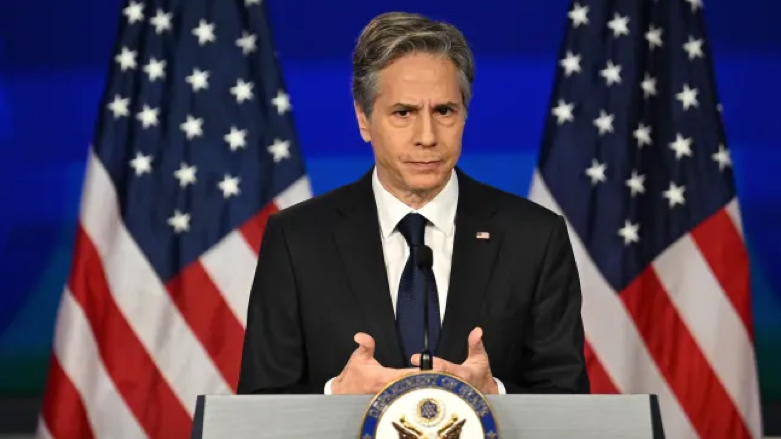Blinken Defends Deal to Release U.S. Prisoners in Iran Amid Wide Criticism

WASHINGTON DC, United States (Kurdistan 24) – Speaking to reporters on Tuesday, U.S. Secretary of State Antony Blinken defended the decision of the Biden administration to authorize the release of $6 billion of Iranian funds held by South Korea in exchange for the release of five Americans wrongfully detained in Iran.
Read More: U.S. and Iran to Swap Prisoners; Iran to Receive $6 billion in Frozen Funds
That money, as the Foundation for Defense of Democracies explained, was deposited in an Iranian escrow account in South Korea, after Donald Trump left the Iranian nuclear accord, formally known as the Joint Comprehensive Plan of Action (UCPOA), in 2018.
Initially, the Trump administration gave South Korea a waiver to continue its import of oil from Iran. However, the following year, it canceled that waiver and directed payments for oil that had already been delivered into escrow accounts.
That is how South Korea came to hold $6 billion in Iranian funds, and it is that money which is now set to be released for humanitarian supplies in exchange for the release of the five Americans.
Key Points Made By Blinken
Blinken sought to stress that the agreement did not change any aspect of U.S. policy toward Tehran, despite the release of the funds held by South Korea.
It was an isolated, stand-alone deal, according to the U.S. Secretary of State.
“Nothing about our overall approach to Iran has changed,” Blinken stated, before listing the administration’s key goals in its Iran policy: 1) ensuring “Iran never acquires a nuclear weapon;” 2) holding Tehran “accountable for its human rights abuses,” as well as 3) its “destabilizing actions in the region,” which include 4) “the funding of terrorism,” and 5) the “provision of drones to Russia.”
However, economic pressure, as exercised through sanctions, is a major part of the U.S. effort to mobilize the leverage to oblige Iran to change its policies. U.S. economic leverage over Iran will become much weaker through this deal, even as Iran will acquire greater means to pursue the policies to which the U.S. objects.
Criticism of the Deal
Indeed, the deal has brought sharp criticism. The editors of The Wall Street Journal denounced the agreement on Monday as a contemporary version of the “arms for hostage” deal that the Reagan administration struck with Iran in the mid-1980s.
That entire effort was self-defeating. It was conducted in concert with Israel and at its urging. Senior Israeli officials believed that Iran’s Islamic radicalism was “a short-lived phenomenon,” as The Washington Post reported then, and that Western arms sales would strengthen moderates in Iran.
Pro-Iranian militias in Lebanon, above all Hizbollah, regularly seized Americans in that country. Each American was released following an arms shipment to Tehran. As the arms shipments were covert, few people understood what had led to their release.
The results were predictable. Following the release of one American, another would be kidnapped in order to ensure the continued flow of U.S. arms to Tehran.
New York Times columnist Bret Stephens, writing on Tuesday, noted that Iran would receive $1.2 billion for each of the hostages it held. That the money would go for humanitarian purposes was irrelevant, Stephens wrote, as money is fungible—a point that Kurdistan 24 has made as well.
“Every dollar the Iranian regime doesn’t spend on basics can be used for other regime priorities,” Stephens said, “like buying surveillance technology from China, torturing women, funding terrorist proxies and attacking American service members.”
“Iranian leaders have learned that an excellent way to erode American sanctions is to take more hostages,” he continued, and “they’ve also learned to treat $1.2 billion as the baseline price for their eventual release.”
